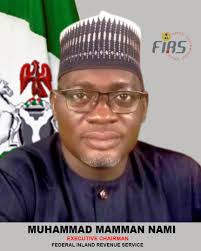Apparently encouraged by the boost non-oil tax sources have been giving its revenue accruals in recent months and the need to consolidate on collections from the sources, the Federal Government has directed all bank, insurance and other financial institutions customers in the country to immediately fill Self-Certification Forms with their banks or face sanctions.
The directive was contained in a Notice to the general public issued Thursday by the fiscal authorities.
Specifically, the Notice stated: “This is to notify the general public that all account holders in Financial Institutions (Banks, Insurance Companies, etc) are required to obtain, complete and submit Self – Certification Forms to their respective Financial Institutions.
“Persons holding accounts in different financial institutions are required to complete & submit the form to each one of the institutions. The forms are required by the relevant financial institutions to carry out due diligence procedures in line with the Income Tax Regulations 2019
“The self-certification form is in three (3) categories, namely – Form for Entity; – For Controlling Person (Individuals having controlling interest in a legal person, trustee, etc); and – Form for individual
“Failure to comply with the requirement to administer or execute this form attracts sanctions which may include monetary penalty or inability to operate the account.”
The government advised all affected customers to visit the Federal Inland Revenue Service’s (FIRS’) website for more enquiries.
Analysts believe that the latest move is intended to ensure that all incomes earned by bank customers are properly assessed with a view to ensuring that appropriate taxes are paid on such earnings.
However, they noted that the step may discourage savings and invariably adversely affect the economy.
A finance and tax expert, who spoke with BRTNews on the latest directive of the government on the condition of anonymity, cautioned: “Yes, I know the purpose of the Notice is to prevent tax evasion of some sorts. But the truth is that, Nigerians are already over-taxed, especially the low income earning people who are just managing to eke out a living as spiraling inflation has turned millions of them into poor people.
“What this may trigger in the medium and long terms is that it will discourage savings by artisans, traders and MSME operators, who may now be collecting their incomes manually and be keeping such monies in their private safe.
“As we know, a fiscal regime that discourages savings is hardly desirable foe any economy. I think the fiscal authorities must tread cautiously in the current aggressive revenue drive which is hurting poor Nigerians and the economy”, the expert warned.






